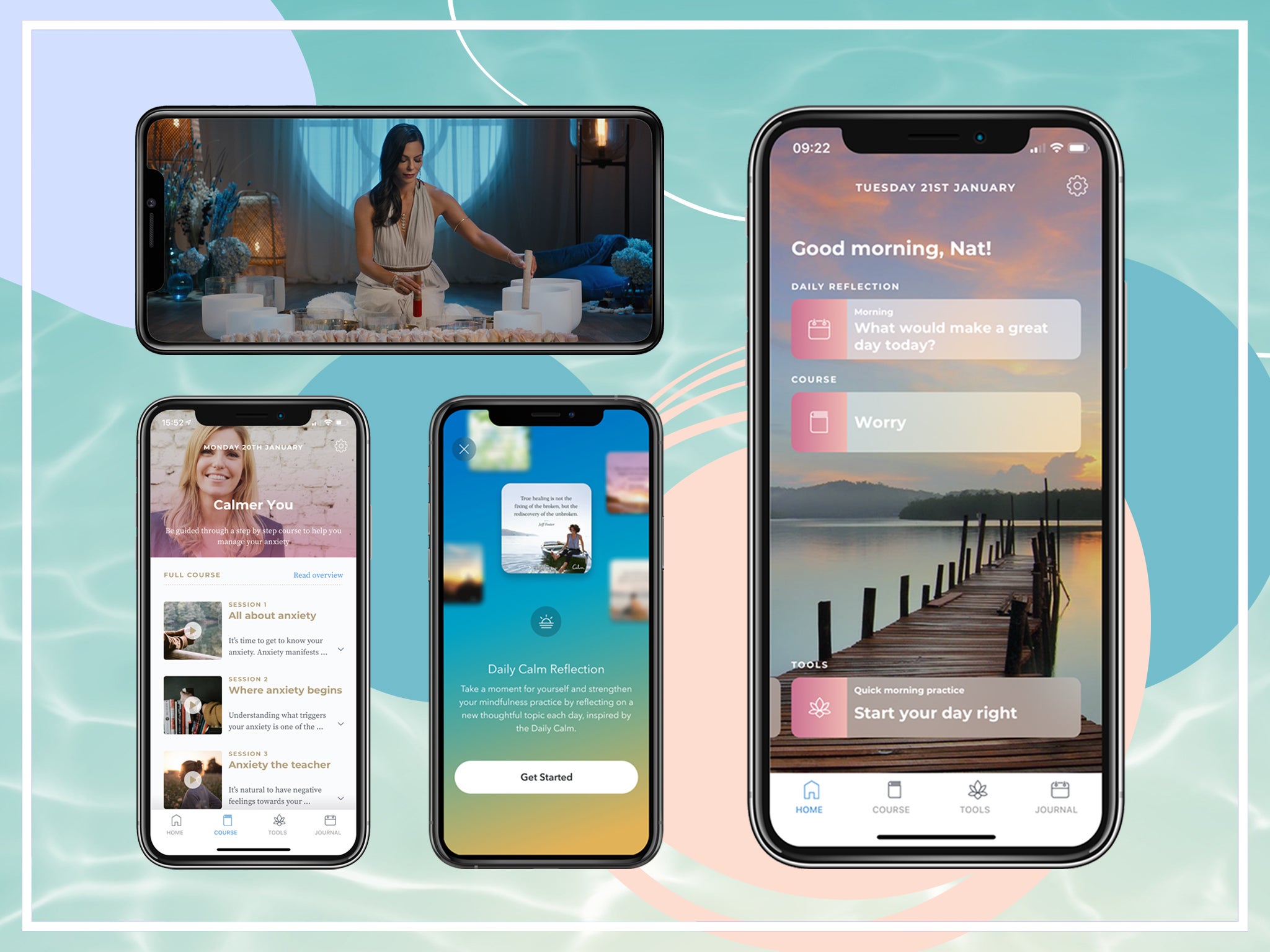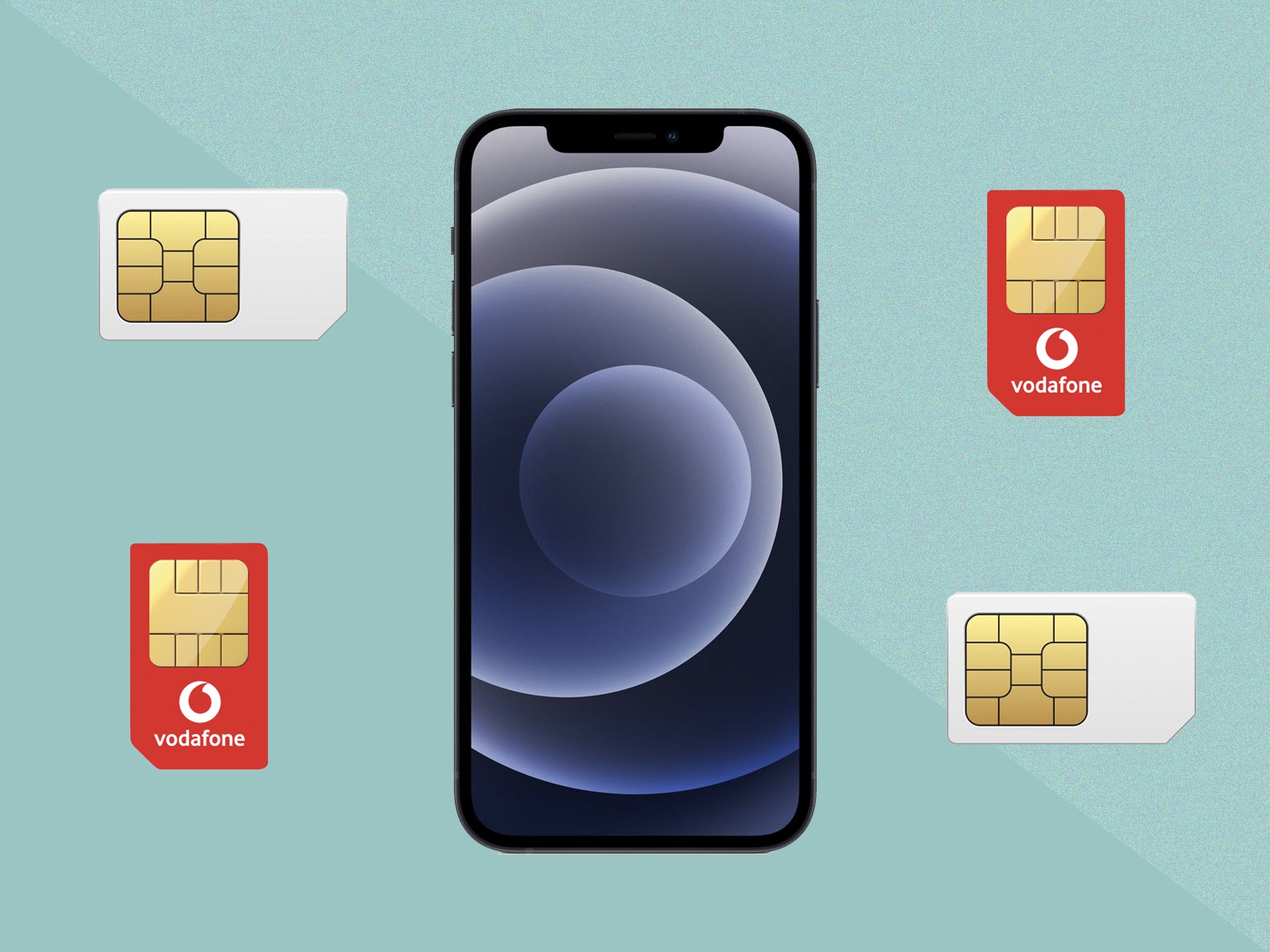The Independent's journalism is supported by our readers. When you purchase through links on our site, we may earn commission. Why trust us?
10 best language learning apps for exploring the world from home
Learning to speak a new language as an adult may seem daunting, but it’s a skill you’re never too late to start
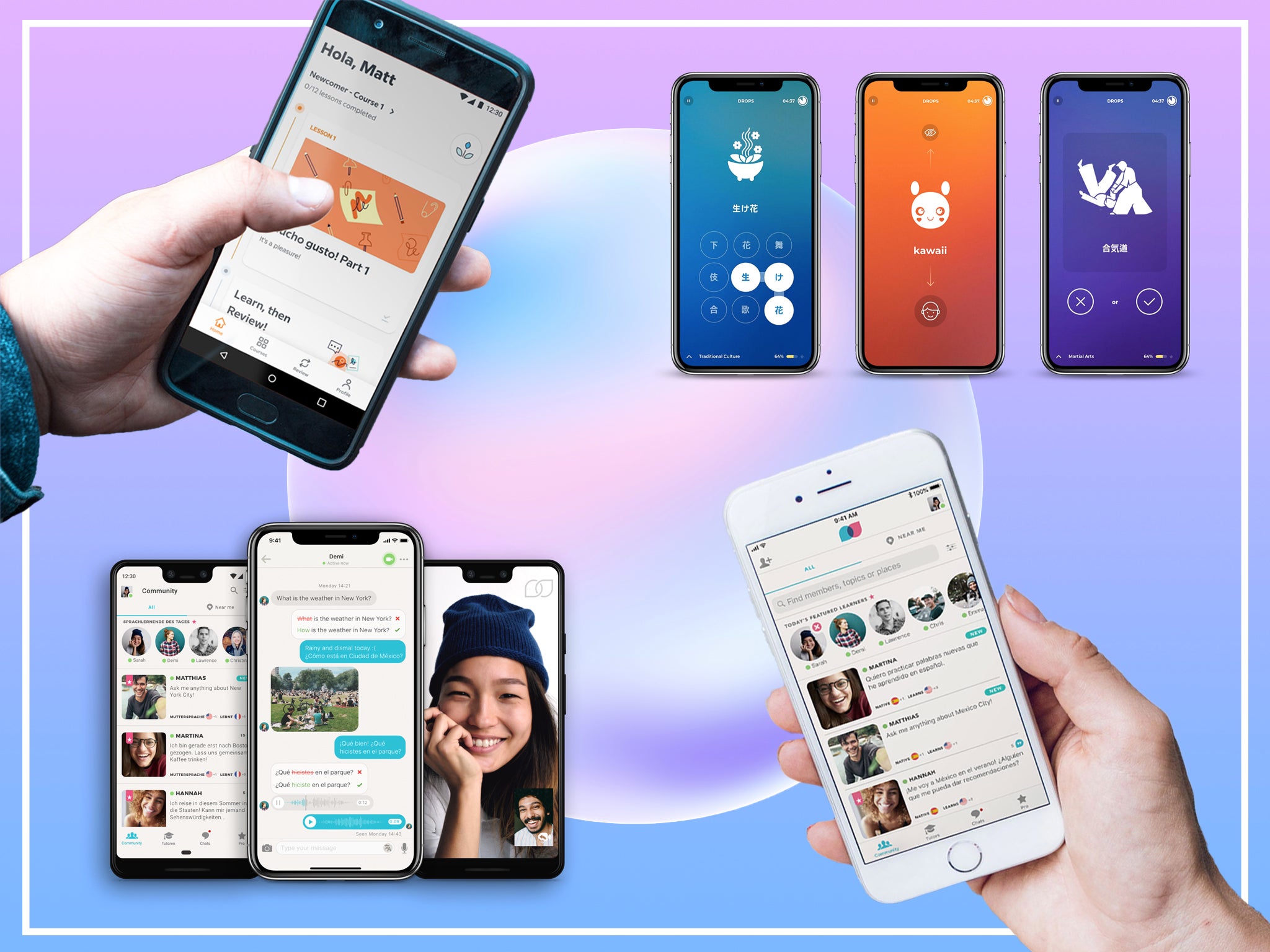
During the first lockdown, language apps surged in popularity as users looked for new ways to fill their days. But learning a language does more than just kill time, it’s also a great way to explore the world from home, train your brain and open up new job opportunities.
Plus, the sense of satisfaction you get from speaking a new language can provide a boost of confidence that’s hard to attain as an adult.
Read more: 8 new skills to learn while in lockdown, from cooking to photography
However, it’s easy to run out of steam when you don’t see instant progress. Learning a language is a marathon, not a sprint, and consistency is the best way to achieve fluency.
So finding a learning tool that you love will go a long way to keeping you motivated. With so many language apps on the market now, it can be hard to know where to start.
We tested out French, Spanish and German courses (the three most studied languages in the UK according to The British Council Language Trends 2020 report) across ten different language apps.
We’ve evaluated each app on its ease of use and functionality, how fun and engaging the lessons and activities are, the price, and how effective the teaching method is.
So whether you’re an absolute beginner or a polyglot, you’ll be able to find an app to help you polish your Bonjour, Hola and Hallo, that suits your learning style, budget and goals.
You can trust our independent reviews. We may earn commission from some of the retailers, but we never allow this to influence selections, which are formed from real-world testing and expert advice. This revenue helps to fund journalism across The Independent.
Busuu

Named after an almost extinct language in Cameroon, Busuu is a UK-based language app with courses in 12 major languages, from absolute beginner through to upper-intermediate.
We loved the interactive activities that followed on from vocabulary or grammar explanations and found the phrases and vocabulary were highly relevant and genuinely useful. The simple activities such as spelling, matching a word to the corresponding image, fill-in-the-blanks, and choosing the correct grammar were perhaps sometimes too easy, but it did mean we almost always got 100 per cent right, which is a nice boost of confidence!
We loved trying the peer-reviewed speaking and writing exchange. You record yourself responding to a prompt or type out a writing exercise, then send it off to be reviewed by a native speaker of the language you are learning. The feedback we received was personalised, encouraging and helpful. We could also review other learners English recordings, which was a nice way to give back. This format took the stress away from a real-life conversation, but provided much-needed speaking opportunities.
Busuu is available completely free, with the option to upgrade to the premium model for £5.41 per month. As a bonus, premium users also get discounted rates to the newly launched one-on-one live lessons, when you’re ready to engage in real life conversations.
Free to download and use
Speechling
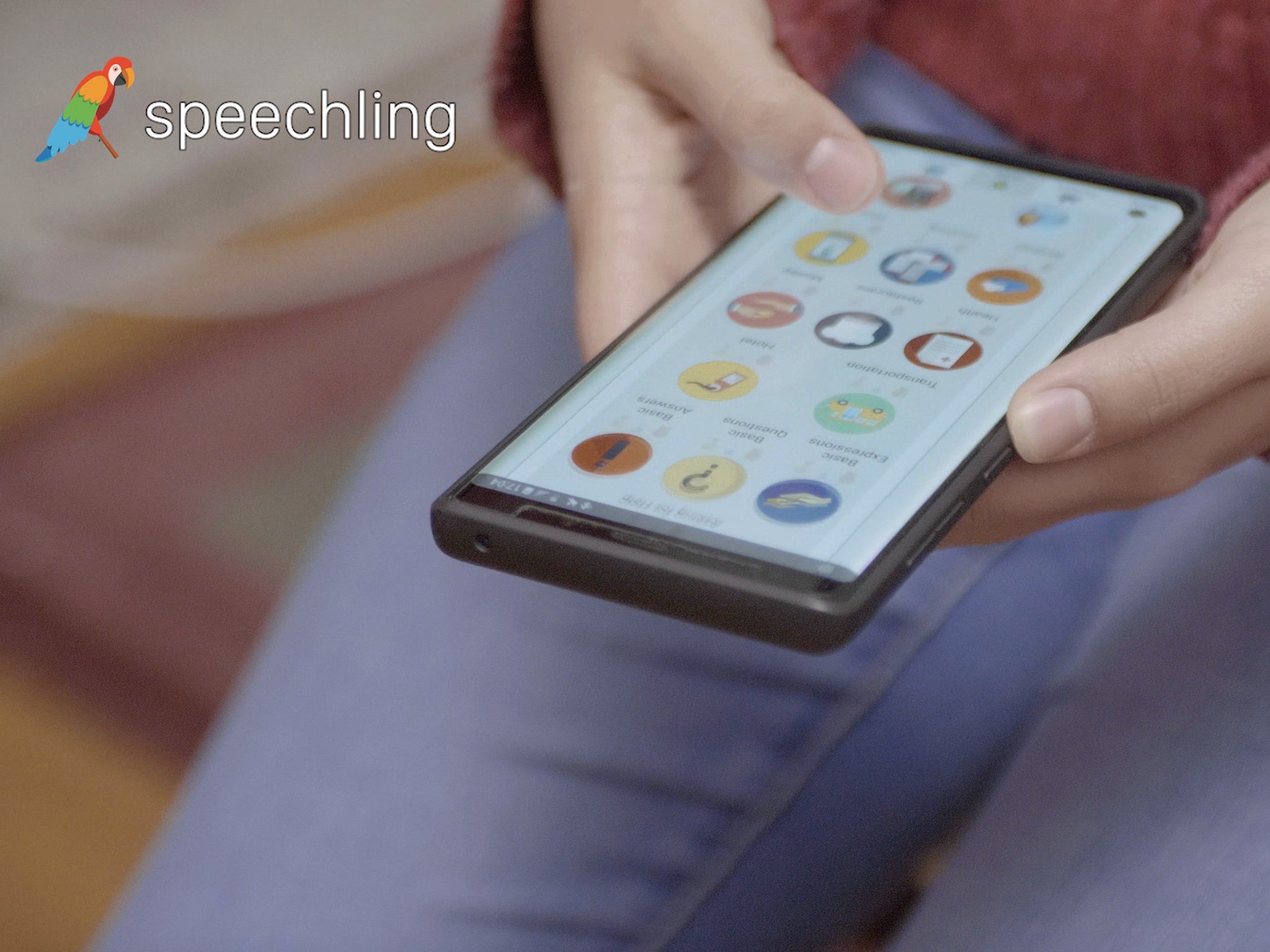
Speechling is a non-for-profit based in the US that is trying to solve the problem of the lack of free and affordable tools to enable people to speak at home. The team’s belief is that everyone in the world deserves equal access to language education, so they’ve made their entire platform free. Though there is an option to upgrade to the premium version for around £15 per month, which gives you unlimited access to one-on-one tutoring feedback. At that steep price, we think the generous free version is an absolute steal.
This unique solution puts the focus on speaking, without the pressure of a real-life conversation. You start by listening to helpful phrases and sentences recorded by native speakers, then with the option to record yourself repeating them back. When we tried, we received a recording about 12 hours later, with corrections via voice note. We think this method would work great for beginners who want to gain with confidence, while intermediate learners can use it to improve their vocabulary and pronunciation.
Apart from the speaking activities, the Speechling toolbox has further activities to work on your other language skills: dictation, listening, fill in the blanks, multiple choice quiz and flashcards. These are all well-developed, and we found them more challenging than some of the other apps at comparable levels.
Free to download and use
Babbel
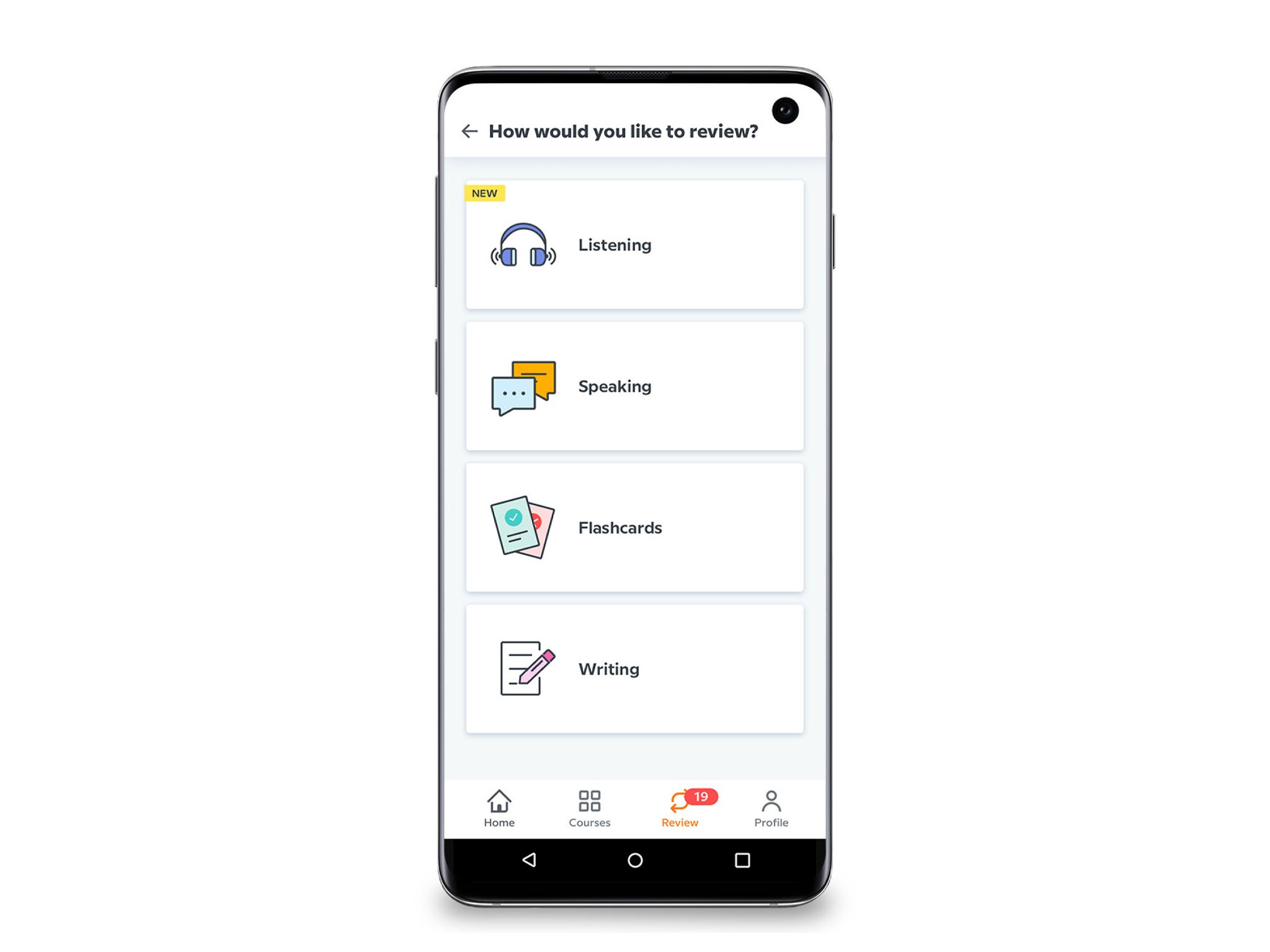
Babbel is an all-in-one online classroom for self-paced learning. Its short, context based lessons are relevant and level appropriate. We found the lessons to be engaging, and moved along at a quick enough pace. The app itself is easy to use, and packed full of learning courses ranging from simple vocabulary and grammar for beginners, through to full conversations and grammar exercises for advanced learners.
The grammar tips that pop up are handy, as they can explain tricky things you might not have picked-up otherwise, such as the verb forms in different tenses. We found they navigated this balance between grammar and practice very well.
The speech recognition tool wasn’t as robust as some of the others we tried, and after repeating one word six times, we had to give up and move on. We like that you can switch on “no speaking” if you’re learning in a public place. If you feel like some more passive learning, the recorded stories provide a great way to expose yourself to the language. Challenge yourself to pick up as much of the story as you can before looking through the transcript.
£8.75 per month (first month free)
iTalki
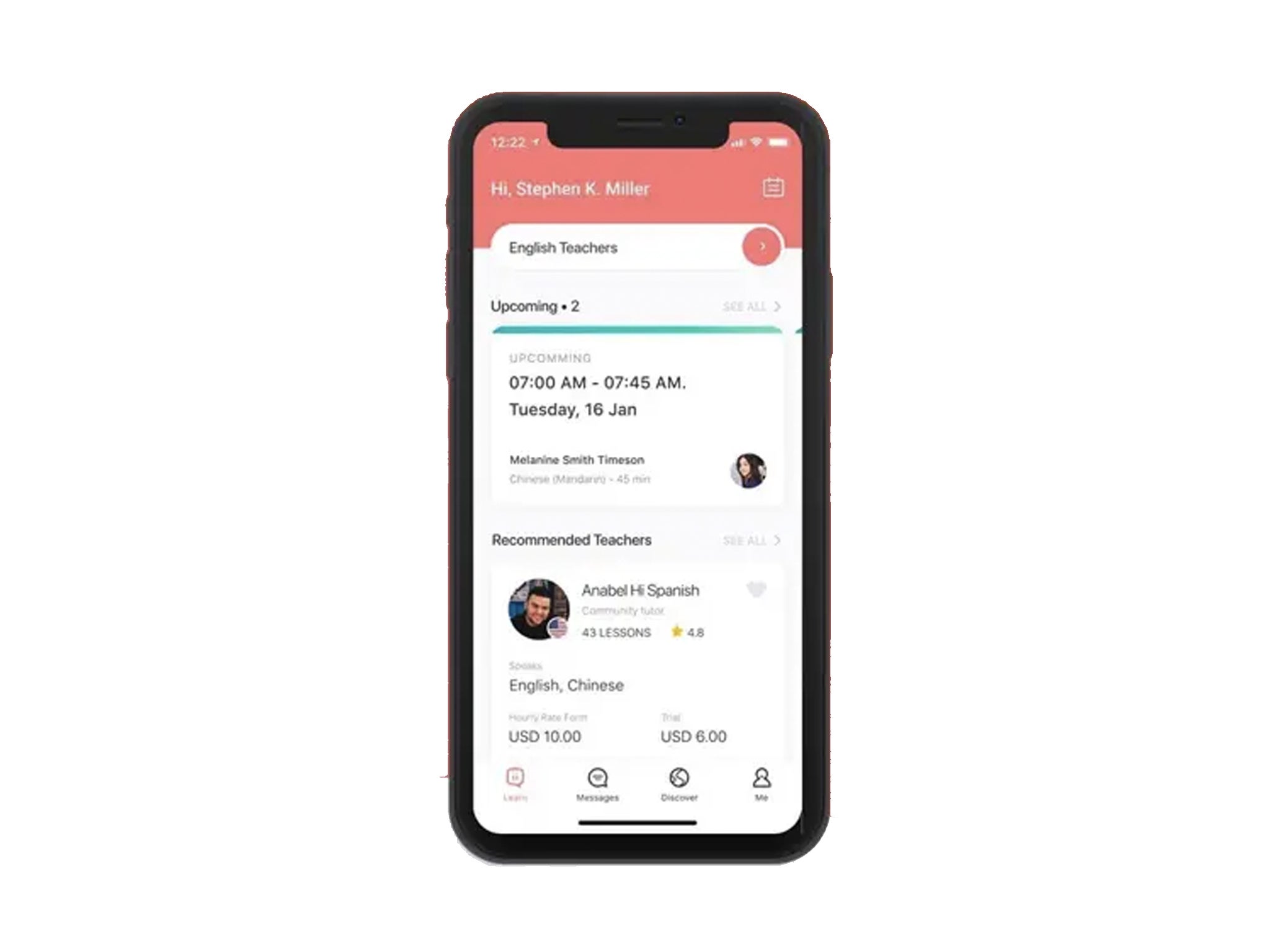
You simply can’t beat real-life conversations as the quickest way to improve your language skills. It’ll push you out of your comfort zone and improve your vocabulary, while testing just how much you do know. iTalki is a tutor platform that makes it easy to find one-on-one support with a friendly tutor who can help you find your voice.
We loved the fact we could trial tutors at a discounted rate, to help find someone who suited our learning style. The sessions are designed to be free-flowing conversations about anything you choose, so come prepared to talk! You can also bring additional materials, or the tutor might suggest articles or activities for you to complete together. Be prepared, an hour long free-flowing conversation in a foreign language can be exhausting. So if you are a little timid speaking, it might not be the right option for you.
We found the price range varied greatly (although iTalki says the average is around £10) so you should have no problem finding someone to suit your budget and availability.
Prices for conversations vary around £10
Rosetta Stone
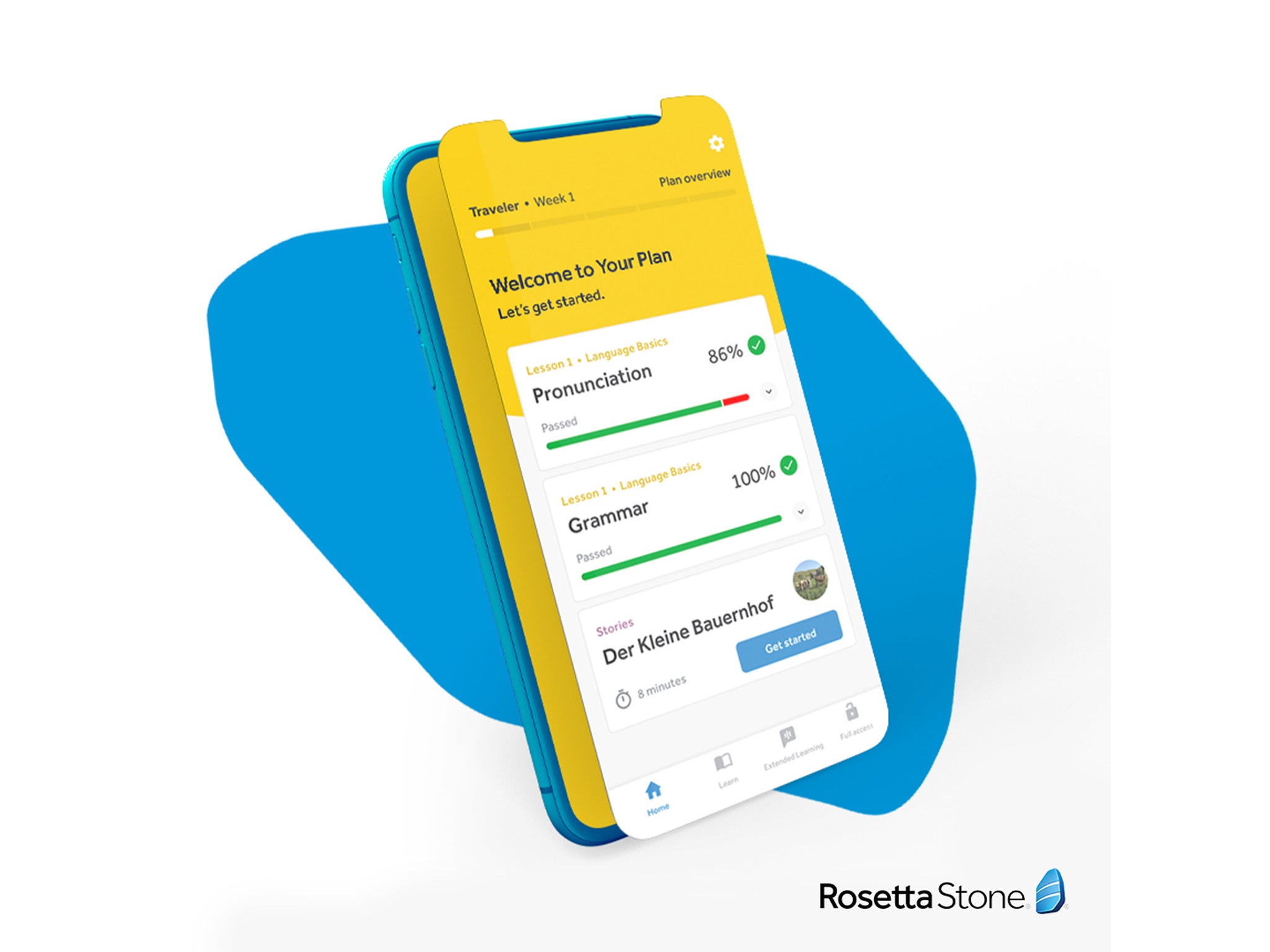
As a stalwart in the language learning world, Rosetta Stone is a reliable option. It is one of the more expensive options in the list, but you’re getting 30 years of experience.
One of the things we love is that you will only be learning in your target language, without English translations. This is the way many traditional language schools teach, so it’s great to find an app that also operates that way. Studies have found that the use of only target language helps to improve pronunciation, spoken fluency and accuracy in learners quicker than a mixture of both.
The lessons themselves are interactive, and switch between activities such as typing, selecting the right word, matching the text to the image, and recording yourself to keep it interesting. The images are all stock, but at least they are clear, high quality and, like the texts you’re learning, relevant too. Best of all, there’s no repetition, so you won’t get bored.
The company promotes its voice recognition software as “industry leading”, and we found it to be good at picking up our voice, but not flawless. Some of our intentional mistakes were given a green tick, so it’s certainly not a foolproof solution to speaking practice. That said though, classes are suitable for any language level, and the difficulty scales up with the learner. We also loved the fact that the lessons continuously played, without the need to click continue – which we found helped us keep learning for longer without even realising.
The longer lessons, price and structure means Rosetta Stone is a winning option for serious language learners who need a financial commitment to keep up momentum, but love the flexibility of self-learning at home.
Prices start at £11.99 per month, with a three-month commitment
Duolingo
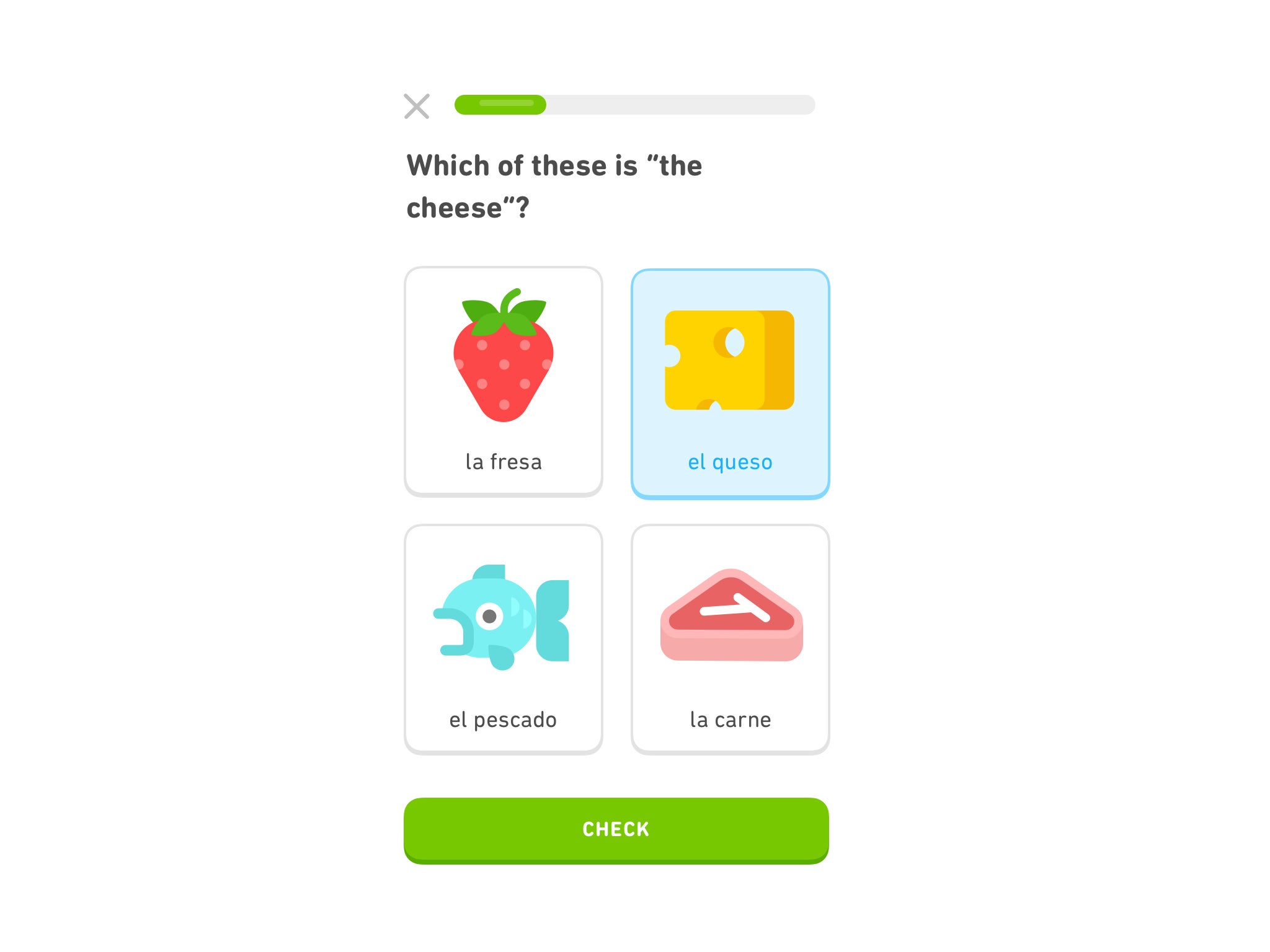
Since 2011, Duolingo has been rated as one of the best language learning apps by flipping the old way of learning on its head. Instead of books and classroom teachers, you learn through gamification and Duo: its supportive mascot. Duolingo’s mission is to bring language learning to the entire world, and so you can learn any of their 39 languages available for free.
We think Duolingo is a great resource to help build up your exposure to a new language. It’s a bit like a parent holding your hands as you take your first steps into the language world. While it’s a great way to get started with the basics, where it falls short is in real-world contextual learning. So when you’re ready to take the next step, you might want to look for another app that gives you more practical language application.
Duo’s habit of shaming you into continuous learning will make even the most reluctant learner open up the app every day. If you like games, simple exercises and need a bit of an extra push without spending a cent, it’s the app for you.
Free on Windows, iOS, and Android devices
Linguistica 360
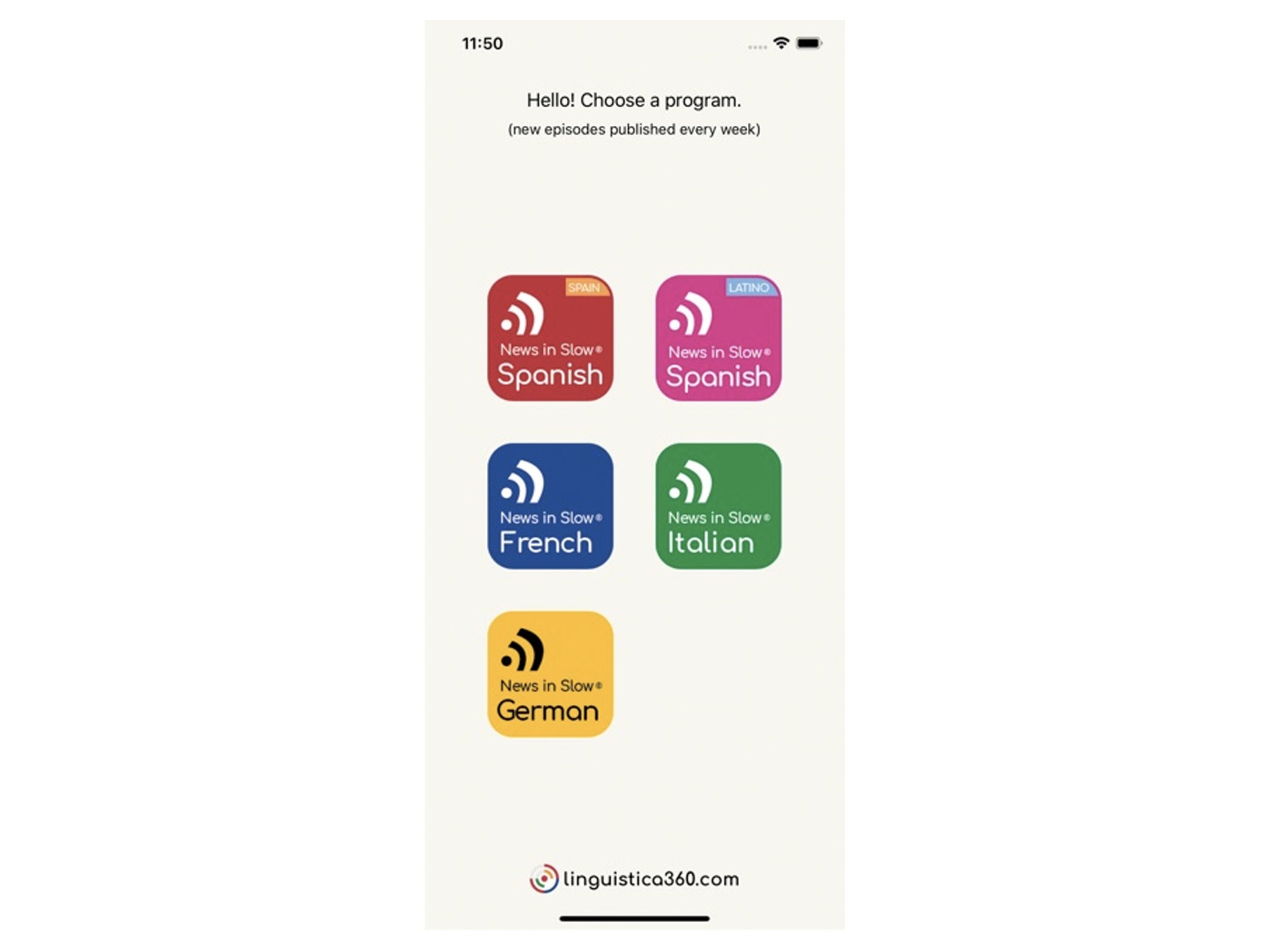
The Linguistica 360 app helps you learn languages through current news stories. It follows the format of a podcast, so you can listen on the go, but the audio pace is slowed down to ensure you catch every word.
The app offers “NewsInSlow” weekly news reports in the major European languages: German, Spanish, French and Italian. We found the vocabulary in the news reports to be quite advanced, so it would really only suit intermediate to advanced learners. But the accompanying transcript is a great way to improve vocabulary, as you simply click on any word to get the English translation.
The app itself is fairly no-frills, but it is available for free. There are no games or activities, but it is a great way to immerse yourself in a language through current events.
Free to download and use
Beelinguapp
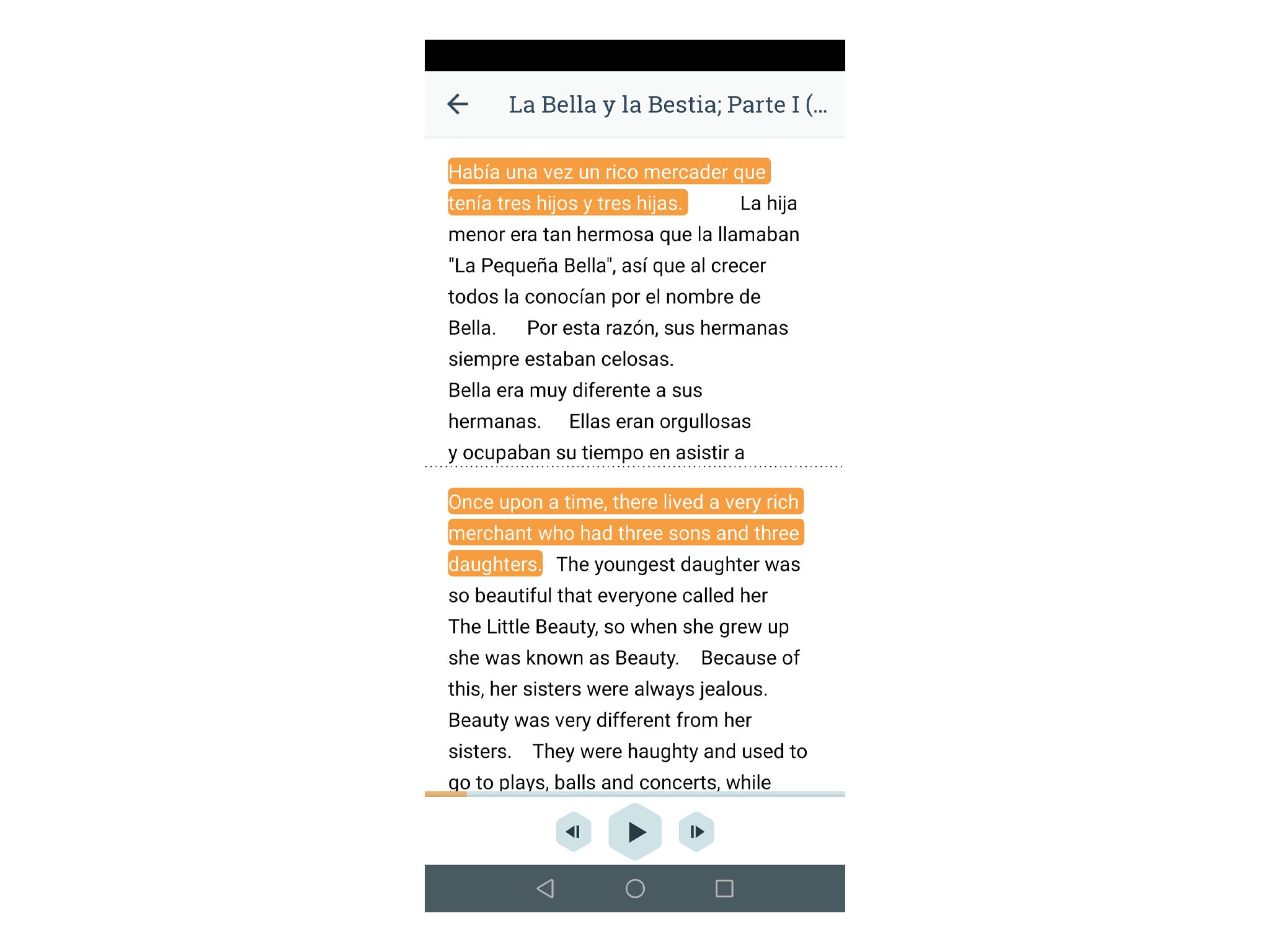
Beelinguapp focuses on one skill: reading. The app supports 12 foreign languages with a massive library of reading material. It offers translated short articles such as “Three Good News Stories from 2020”, classic fairy tales such as The Beauty and the Beast, plus cultural intrigues such as “Breakfast Around the World” and “How We Form Habits”. The children’s stories are a great option for bedtime reading for bilingual kids.
The target language was translated into English accurately, and we found the accompanying audio recording to be clear and easy to understand. Plus, the comprehension questions at the end were a great way to catch us out if we weren’t paying attention. The other benefit is that you’re not limited to only English translations. So if you are a native Spanish speaker learning French, you can elect to read the story in Spanish and French.
We found the beginner level to still be a bit of a challenge compared to other apps though, as you are reading long passages, compared to short phrases or vocabulary. However, if you’re up for the challenge, this will help you improve quickly if you can stick with it.
It has in-app purchases and other upsells, but you don’t necessarily need them to reap the apps benefits. We think the free version is one of the best apps out there to really push your learning to the next level.
Free to use with optional in-app purchases
Tandem
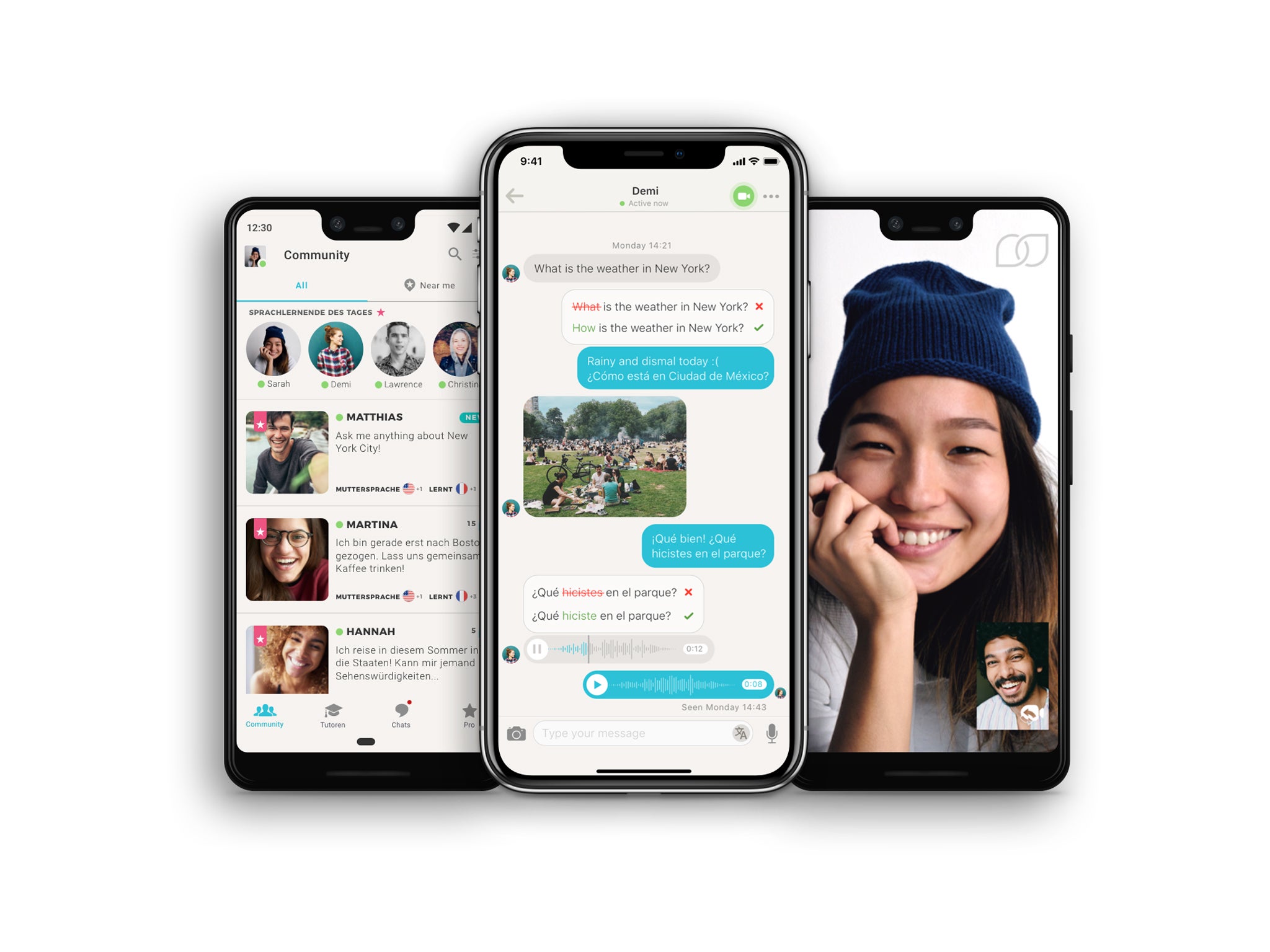
Tandem is a free app that helps you set up language exchanges with people from around the world for free. We found the app simple to use, but as the Tinder of language apps, it can seem more like a dating app than an educational app. Within a few hours we were bombarded with messages from people from around the world and it became hard to know who to chat to or where to begin.
Much like dating apps, you will need to do a bit of work to weed out the good from the bad. However, once you get started, it’s easy to converse and get real experience talking with native speakers. It’s free for anyone to join, although there is an advertised “waiting period”, although it took us less than 24 hours to get approved.
The major difference with the other apps listed is that Tandem is not a language learning app, but a practising app. If you don’t have foundational language skills, you won’t find Tandem useful. But, if you are learning simultaneously on another app, or want to brush up on your previous language skills, it is a handy, free resource. Who knows, you might even meet some international friends to visit one day when borders reopen!
Free to download and use
Drops
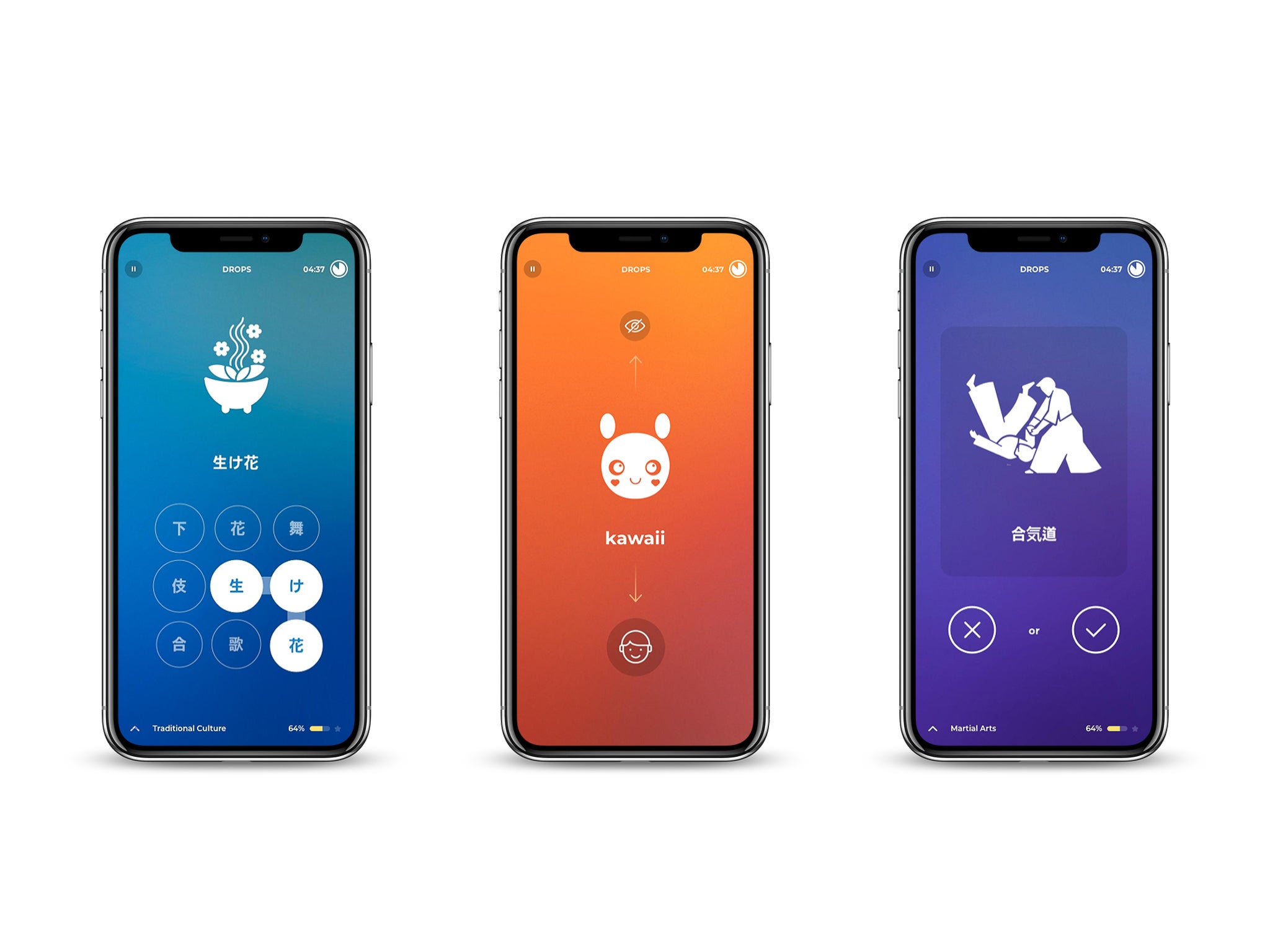
If you’re pressed for time, Drops is the perfect option. Every day you’re served up a new five-minute free daily lesson. These lessons are easy, bite-size learning in a fun gamified way. Games are varied and engaging with plenty of dragging, swiping and tapping, which would appeal to visual learners.
We found these super focused lessons to be fun and engaging. The app itself is visually stunning, with well considered UX design and graphics. However, we did feel the learning process was a bit slow. Five-minute vocab lessons will take you a long time to achieve fluency, which may make it hard to keep up motivation.
That being said, we can imagine it working well for people looking for brain training games, or children needing a bit of fun reinforcement of classroom learning. The app is free, but you can upgrade for £72 per year to get extended lessons to practice as often as you like, no ads, and offline access.
Free to download with an upgrade costing £72 per year

